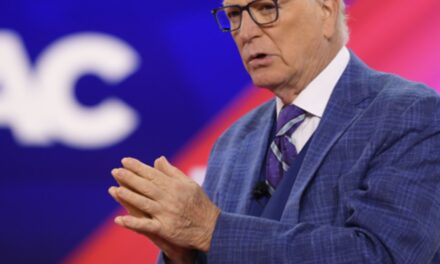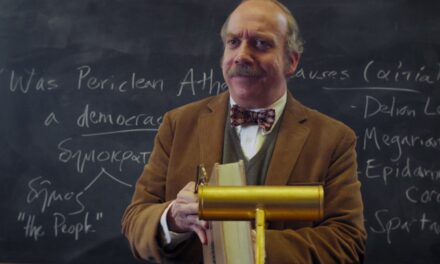I like Jay Cost—or, more precisely, I like Jay Cost’s writings. I’ve never met him. His A Republic No More offered a carefully researched and highly convincing argument about the history of corruption in the United States government. I reviewed it on this site a year or two ago, and, believe me, I wasn’t lying when I said I liked it.
Cost has recently published The Price of Greatness: Alexander Hamilton, James Madison, and the Creation of American Oligarchy, a book that’s tempting me to exceed my monthly budget at Amazon. As for his articles, when I see a Cost opinion piece at National Review Online or The Weekly Standard, I take notice, figuring he’ll write something well worth reading. And if books and essays on politics aren’t your cup of tea, maybe rock music is. Cost likes the Kinks, a rock group about which he gives every indication of knowing more than most would if they dedicated their lives to Kinks’ research. Impressed? Well, maybe not by the Kinks, but I like them too, so it’s good enough for me to see Cost as a contemporary Renaissance man.
But we can’t all bat a thousand, which, as you may have guessed, means I have a small bone to pick with Mr. Cost (or, since I think he defended his Ph.D., Dr. Cost). Three days ago he posted an article at NRO entitled “We’re Not On the Brink of Civil War. Here’s Why.” As for the title and its basic claim, I agree. For all the talk of civil war—real, bloody, Antietam-style, Appomattox-Court-House civil war—I can’t see it, and I hope to God (no mere expression there: I really hope to God on high, the Trinity) I never will see it.
One civil war is enough in a country’s history even if there are many places where civil war is history.
Nevertheless, even Jay Cost, doubtful as he may be about civil strife, cannot be blind to the divisions and displays of outright hatred that plague us today. They’re not regional, as he and many of us can see. Ideology marks these new, very modern wars. The Kavanaugh confirmation stands as a prime example, but it’s just one of many that sharply divides us. When “moderate” voices, senators whom I don’t generally like very much, such as Lindsey Graham and Susan Collins, stand virtually tarred and feathered by the Left for having the audacity to defend and vote for a president’s (from their own party!) SCOTUS pick, and conservatives rush to their defense, surely fault lines have appeared that previously did not exist or that were at least not so prominent.
The election of Donald Trump, love him or hate him, threw open the lid of a Pandora’s box that no one seems inclined to shut. And everything Trump does, whether in the guise of the calm president (too rare), the stern master of the latest apprentice (often enough), or the brash New York bully (too often), prompts his partisans and adversaries to start rattling their sabers. Those sabers (and bullets) aren’t always paper, as Berkeley and Charlottesville have amply demonstrated. That may be far from civil war, but it’s equally far from union.
For Jay Cost, the crisis is overblown. Our Founding Fathers knew, he insists, that self-interest motivated the vast majority of men in this vale of tears. No doubt, in certain places, those who had not gotten far beyond a Hobbesian state nature, the sad reality of human existence (to Hobbes, that is) might experience perpetual, violent strife. But one of the great things about the English-speaking peoples is that they have managed to develop institutions and political habits that render negotiation preferable to bloodshed. Add to that the free, commercial nature of our republic, and you’ll notice that the most prominent way of overlooking differences lies in the exchange of goods and services. You transfer money to somebody else for something you want, and although he may not call you friend, he won’t fight you.
Cost puts it this way: “We can be Protestant, Catholic, Jew, Muslim, or atheist. We can be black, white, or Latino. We can be Northern or Southern. We can be liberal or conservative. We can have any number of professions. But so long as we continue to appreciate that our own personal prosperity depends on the prosperity of those with whom we may otherwise disagree, we shall remain together.” As he demonstrates, Alexander Hamilton stands behind the sentiment of the “blended and interwoven” interests that have united us at least since the founding.
The principle propounded by Cost appears sound enough. But it’s not quite as ironclad as he might think. What happens to the interest-driven American when a whole generation of young men and women under the tutelage of their professors in schools across the land teach them to regard “prosperity” as little more than a smoke-screen for male-white privilege? What happens when Alexander Hamilton—Broadway musical or no—is castigated as a capitalist, corporatist, and, West Indies background notwithstanding, a racist? Will your dollars impede the “woke” and hooded “Antifa” fanatic as he and dozens like him charge and kick you—wearing jackboots or Nikes—for having the temerity to stand up for free speech and a free press, for defending civil debate? Will your arguments receive a hearing at a university or other public forum after the mob has infiltrated the crowd? Do they have a price other than your complete surrender?
Something has happened in America that Alexander Hamilton didn’t count on. A significant number of our people, largely young people who naively suppose they’re recipients of oracles from on high, have ceased to regard our institutions and traditions as hard-won blessings. They’re the next generation of voters, radical to the core, and many of us will live to see them swing an election or two. More like the French Jacobin (tellingly the name of a current Leftist online magazine) in 1793 or the Russian Bolshevik in 1917, the new radical wants to trample the opposition, annihilate all memory of the past, and replace our institutions with a “democratic” total state. Their “history” casts the Founders of the exceptional American experiment as little more than devils, shrewd, self-serving powerbrokers whose goal was to crush “the people,” denying them “social justice.”
That development that may not produce another Gettysburg, but it’s no seedbed for an amicable politics. Indeed, when civil ends and incitements continue to diverge as sharply as ours are doing in these desperate times, a man may count his lucky stars if he avoids the guillotine or the Gulag. That’s a grim and, one hopes, unlikely prospect. However that plays out, I doubt mutually beneficial trade will go very far in preventing further strife and deeper divisions.














